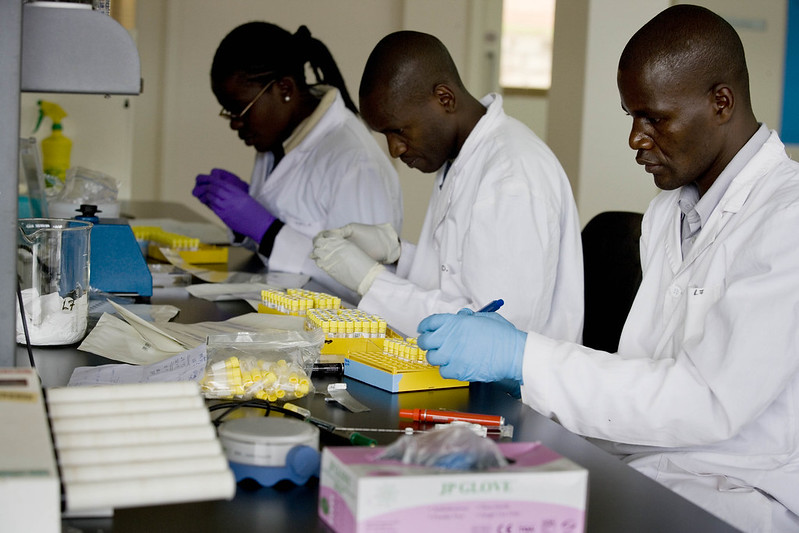Sheila Mburu, Nicole Huxley, Rachel Miles, Laura Scott, Alice Cross and Marta Tufet
As part of Black History Month, UKCDR are running a series looking at racial inequality in international development research, and particularly the effects on Black, Indigenous and People of Colour (BIPOC) communities. The series includes the following long-form article, which explores some of the ways in which racial inequality is perpetuated and efforts to decolonise research and mobilise global voices, as well as three invited blog pieces to bring the issues in question to life through the eyes of three African researchers currently working at different levels within the research pathway. While these insights are far from exhaustive, UKCDR recognises that the journey towards race equity requires both considered discussion and commitment to change. The articles are therefore intended to share insights with the hope that it helps to foster open dialogue and encourages review and change of practices across the sector.
Global Black Lives Matter protests against institutional and systemic racism, triggered by the deaths of George Floyd and Breonna Taylor earlier this year, have forced critical conversations in nearly every sector across the world – including the international development research sector.
International development research is the pursuit of a better world for all, but persisting structural racism opposes this vision. How can we claim to promote equity and justice for all in a global society that disadvantages certain lives over others?
To view the response to the death of George Floyd in isolation from the history across the world of Black people’s oppression, is to miss the weight and significance of the movement we are witnessing as part of a continuum of struggle and resistance.
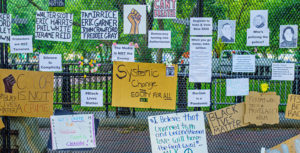
George Floyd’s killing was a reminder of Emmet Till, Tamir Rice, Breonna Taylor, Amadou Diallo, Stephen Lawrence, Jimmy Mubenga, the Tuskegee study victims and the countless other Black people who have died at the hands of racism and racial injustice. It is emblematic of the systematic and structural racism that still pervades nearly every sector in society today, including international development research. This omnipresent injustice is the proverbial knee on the neck of many Black people across the world.
We have seen “the structural dismissal of Black life” throughout history – slavery, segregation, apartheid and colonialism. The insidious remnants of these legal and state sanctioned systems of oppression and brutality still permeate today’s society and cannot be divorced from the protests and outcries against racial injustice we are seeing across the world.
Racism is not only seen in explicitly racist, violent, and openly discriminatory acts, but in structures that systematically disadvantage Black, Indigenous and People of Colour (BIPOC).
Structural racism describes the “totality of ways in which societies foster racial discrimination, via mutually reinforcing inequitable systems (e.g. housing, education, employment, earnings, benefits, credit, media, health care, criminal justice etc.) that in turn reinforce discriminatory beliefs, values and distribution of resources, reflected in history, culture, and interconnected institutions”.
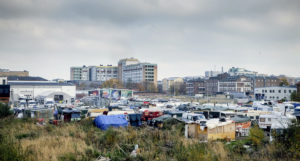
Racism and racial inequality in international development research is not a new issue, but one that has pervaded the sector throughout its existence. Yet it is still not discussed loudly, nor often enough. Those of us working in international development research have a responsibility to deconstruct the ideologies and practices which perpetuate racism. To do so, we need to critically examine the colonial legacy of our sector and understand how it impacts on the power dynamics in research partnerships between high and low- and middle-income countries today.
We need to have the difficult conversations that expose and dismantle racism in our sector and create opportunities to learn from present efforts to decolonise – that is, confront and challenge colonial practices and logics.
Decolonisation of international development research
When we apply this historical lens to international development research, we must examine our roots in colonialism, seek to decolonise international development research and work towards dismantling racism and inequality in our sector today.
Injustice Persists
Although many believe we live in an idealist, “post-racial” society, the reality is racial inequality persists and when examining present racial injustice, we cannot disconnect the past from the present.
The UK Windrush scandal is a salient example of how overlooking colonial history leads to present day injustice. Hundreds of commonwealth citizens, proactively invited to move to the UK after the Second World War, were decades later being subjected to wrongful immigration enforcement measures, in part due to a lack of understanding of Britain’s colonial history.
During the ongoing pandemic, we have also seen the disproportionate impact of COVID-19 on BIPOC communities in the UK, US and Brazil. In England and Wales, the risk of dying among men diagnosed with COVID-19 is 4.2 times more likely in Black men, 3.66 times more likely in Bangladeshi, and 3.55 times more likely in Pakistani, when compared to white men. While there have been attempts to attribute this to ‘natural’ susceptibility or immunity, based on outdated notions of biological race, the reality is that socioeconomic disparities which disproportionately impact BAME communities lead to poorer health outcomes and historically racialised experiences of healthcare mean they are also are less likely to seek care when needed.

In the US, COVID-19 hospitalisation and deaths are almost 5 times higher and 2 times higher respectively for African Americans than white Americans. In Brazil, which has the second highest number of COVID-19 deaths globally, ‘COVID-19 has been deadlier for Black Brazilians’, a legacy of structural racism dating back to slavery. In May,55% of Afro-Brazilian patients hospitalized with severe COVID-19 died, compared to 34% of white patients.
From Windrush to COVID-19, these events demonstrate why we must understand historical injustice in our interrogations of present-day events. Racism is systemic, structural, and cyclical. To disrupt this cycle, we must learn lessons from both the past and the present. A learning which is continual and reflective.
The legacy of colonialism
Historically, Western-led research had long relied on the knowledge and exploitation of colonised peoples. In many ways it still does. In international development research, the legacy of colonialism persists in invisible power structures and practices which often reproduce colonial practices.
This ‘Coloniality of Power’ − an expression coined by Anibal Quijano to describe colonial structures of power, control and hegemony which still pervade society today − is seen in exploitative extractive research activities such as ‘Parachute research’. Researchers will drop into a low income country making use of local infrastructure and people, collecting specimens and then heading back home to analyse them, and as Nurith Aizenman at NPR reports, “They don’t coordinate with people fighting the epidemic on the ground — don’t even share their discoveries for months, if ever.” Often, findings are eventually published in prestigious journals that are not accessible and with little or no credit to local collaborators. On the other hand, a piece of research published in a local journal that is accessible by local researchers may have higher development impact, but in applications for funding from high-income countries may be seen to carry less weight than a less impactful publication in a high-income run journal.
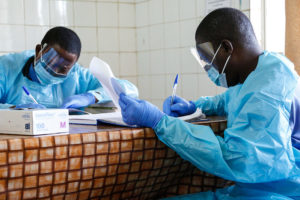
Change has begun, with members of the global scientific community actively condemning these practices and universal commitments like the Nagoya Protocol, ratified by 116 countries, pushing towards fairer and more equitable benefit sharing arising from the use of genetic resources, as well as the Plan-S open access movement. However, asymmetries of power still persist across the sector which require us to continue to question and reflect on how these unequal structures created by the legacy of colonialism can be addressed – that is, how to decolonise global development research.
Decolonisation
Many research institutions working in the field of international development research, which were built on colonial foundations and ideologies, are now re-examining their historical practices and beginning to work towards decolonising global development and , to transform the research landscape and to give rightful and due prominence to BIPOC voices. Research is also an important tool to help understand the impact of colonisation across the sector. To decolonise knowledge and research, we must study and understand the role that we play in perpetuating these ideologies. Understanding these implications for researchers and communities we work with in lower-resource settings will also enable us to work towards redressing this balance.
In the words of James Baldwin, “not everything that is faced can be changed, but nothing can be changed until it is faced”.
The question is, how can we work towards deconstructing power at a systemic/structural level?
The journey to racial equity
Whilst we continue to unpack how colonial structures of power have resulted in contemporary inequalities, at UKCDR we recognise that when working with low-resource countries there are actions that we can take now to strengthen anti-racist and anti-colonial practices.
Shifting the centre of gravity
The traditional flow of aid funding and practices from high-income to low- income countries have often reinforced colonial power disparities and compromised the potential impact of these investments. Universal accords such as the 2005 Paris declaration on aid effectiveness and the 2008 Accra Agenda on Action have begun to change discourse and promote local ownership of development agendas. However, with funds still flowing primarily from the North in the form of seemingly pre-packaged funding research calls, it is not unreasonable to question who is really “driving the agenda” in practice.
Recognising this, research funders in our collaborative are increasingly ‘shifting the centre of gravity’ of their activities, that is, not only funding research in LMICs but also shifting the decision-making and management of millions of pounds of research funding from the UK to LMICs. For example, FCDO is supporting efforts such as the Science Granting Council Initiative which aims to strengthen national research funding bodies, and together with Wellcome also supporting the pan-African AESA platform within the African Academy of Sciences, which aims to set the research agenda across Africa, promoting the greatest minds in Africa and transform lives on the African continent through science and in turn also calling for African governments to increase national research investments.
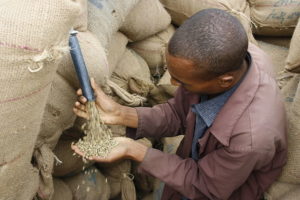
We are also seeing a more inclusive approach among UK funders. For example, research proposals considered through the MRC Applied Global Health Research Board do not require a UK based Principal Investigator, and there are now more research calls by UK research funders open to LMIC research institutions. For example, the Global Effort on COVID-19 (GECO) health research call, funded by NIHR and MRC at UKRI particularly encourages LMICs principal investigators to apply. This inclusive approach is mirrored by conference organisers who provide registration discounts, travel awards and stipends to ensuring access for low- and middle- income country (LMIC) researchers. However, stringent immigration rules present a barrier to participation at the table, especially when the table is in a different country. As highlighted by IDS Director, Professor Melissa Leach, and Wellcome, a UK visa system that refuses visas to African researchers is undermining international collaborations and efforts to tackle global challenges. In response to this, some funders are also choosing to host and fund research conferences in LMIC’s to ensure inclusivity and access.
Equity in research partnerships
While recent decades have seen a significant increase in the range and scale of global development research partnerships, there is still a long way to go in removing historical colonial legacies and racial inequities. LMIC researchers and institutions tend to be under-represented in research partnerships and the long-standing, often implicit, assumption that knowledge flows only from HICs to LMICs means knowledge and expertise from LMICs has historically been unacknowledged. Research funders are recognising the importance of addressing these issues and are working with UKCDR to explore and improve practices in a number of areas – in particular on ensuring equitable partnerships and preventing harm in research.
Equitable research partnerships are not just a moral imperative for addressing racist and colonial practices – they are essential to achieve greater research impact and effectively tackle the world’s greatest development challenges. The COVID-19 pandemic demonstrates the expertise and coordination capacity of many African countries and regional bodies in epidemics preparedness and rapid response and developing innovations, as well as the value of global collaboration and local research leadership. Researchers in the UK and Senegal for example, are working together to develop low-cost, rapid diagnostic tests for COVID-19. African research leaders are also working collaboratively to set research priorities to control and tackle COVID-19 on the continent. Global research challenges require truly global voices, ideas and expertise, and we will not be able to solve them, until all voices are heard, and all have a seat at the table.
However, to be truly equitable, and to achieve this impact, international research partnerships must be built on mutual respect, participation and benefits, with equal value and recognition placed on all partners contribution. Funders of international development research have a crucial role in ensuring research partnerships – particularly those between high and low income countries – are more equitable. There have been a number of efforts to set principles and guidance including the San Code on Research Ethics, KFPE’s guide for transboundary partnerships, the Research Fairness Initiative, and UKCDR’s report. The guidance recommend that funders set the tone for research partnerships in their language and expectations, ensure joint research agenda setting between research partners, seek to shift the centre of gravity through directly funding LMIC institutions, provide long-term funding to support sustainable partnerships and value diverse, complementary skills and knowledge.
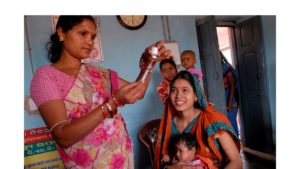
However as is often the case, there is a gap between this rhetoric and practice. We are acutely aware, that for partnerships to be truly equitable, the move from principles to practice must have at its centre BIPOC voices who have the contextual and cultural knowledge and insight to drive real change. At UKCDR we are working with funders and researchers to broker this dialogue, with a view to understanding barriers and enablers through a global cross-funder task force on equitable partnerships.
Preventing harm
Since inequities within research partnerships increase the risk of harm from research undertaken in LMICs, everyone involved in the research process must ensure to not only ‘do no harm’, but prevent harm in research. This harm may take the form of sexual exploitation, abuse and harassment of research participants, communities and research staff, plus any broader forms of violence, exploitation and abuse relevant to research such as bullying, psychological abuse, financial exploitation and/or physical violence.
UKCDR’s recently published guidance and evidence review on how to prevent harm in research, found that there are racialised dynamics in research which increase vulnerability, risk and harm. Interviews in West Africa, Asia and Latin America, led by research leads from these regions, emphasised how equity and fairness, or lack thereof, provided greater opportunity for abuse and exploitation.
“Partnerships that are unfair and rooted in power inequities mean local partners have less input and therefore cannot ensure fair, safe, and locally relevant/beneficial studies” Interviewee from UKCDR’s review on preventing harm in research
All those involved in the research process should take steps to ensure they address, anticipate and mitigate risk of harm, by working with LMIC researchers and communities to ensure a decolonised, and context specific approach to understanding risk and vulnerability. UK funders of international development research have made a joint commitment to raise safeguarding standards across the sector and are now working towards embedding these principles into practice.
Strengthening capacity
BIPOC and LMIC researchers are best placed to identify and address the challenges of their communities and to provide policy-makers with high-quality relevant evidence to inform their decision making, but unfortunately there is still a major gap in overall numbers of LMIC researchers and for existing ones many barriers that prevent them from fulfilling their full potential. There is increasing awareness of the need to build critical mass and increasingly funders are placing attention on strengthening research capacity, through initiatives like the GCRF Growing Research Capability Call and UKCDR have been working over the past decade with funders to promote best practice in strengthening capacity at the individual, organisational and institutional level, looking at the entire career pathway and the enabling research ecosystem.
Whilst there is still progress to be made, change is coming, and has already begun. Across the sector, we have to identify how our organisations and institutions contribute to historical colonial legacies, seek to deconstruct systems and practices which permit it, and challenge the individual and interpersonal biases which enable a culture of racism and inequality. We have to commit to anti-colonial and anti-racist practices and centre the voices of the researchers and communities which have long been silenced. We hope that the issues raised and steps proposed above encourage ongoing review and change of practices across the sector, and will continue to engage in dialogue to explore more avenues for change.
Acknowledgments
We thank Leona Vaughn, Nidhee Jadeja, Sam Kinyanjui and Kevin Marsh for reviewing earlier drafts and providing insightful comments. <
